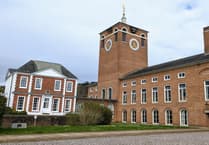The run-up to an election is a fraught time for people vying to represent other residents in the constituency.
But beyond the campaigning and door-knocking, the weeks ahead of an election come with a host of rules that councils must adhere to.
The main restriction is around what a council promotes or communicates to residents between now and the county council election on Thursday, May 1.
The key barometer is whether something a council publicises could be perceived by a ‘reasonable person’ to be using public money to influence the outcome of the election.
An example could be an announcement of a successful campaign accompanied by a picture of the current council leader.
That could be viewed as using council resources to promote the leader – if they are standing again in the election – as well as their political party.
The Local Government Association suggests councils should think carefully before doing certain things.
It acknowledges that if a campaign is already underway and is uncontroversial, then it can continue, particularly if it would waste public money to cancel or postpone it.
When does power change hands?
Many people might think that a councillor gains power as soon as they are elected, but that isn’t quite the case.
All councillors technically remain in office until the fourth day after the election – which in this year’s case will be Monday, May 5.
Between that date and Thursday, May 22, when the council holds its annual general meeting, only the outgoing chair – currently Cllr John Hart (Conservative, Bickleigh and Wembury) – has the power to make decisions.
Most decisions during this period are taken by senior officers in line with their delegated powers, possibly in consultation with the chair.
If decisions can wait until the new cabinet has been chosen on Thursday 22 May, the council may opt to do so.




